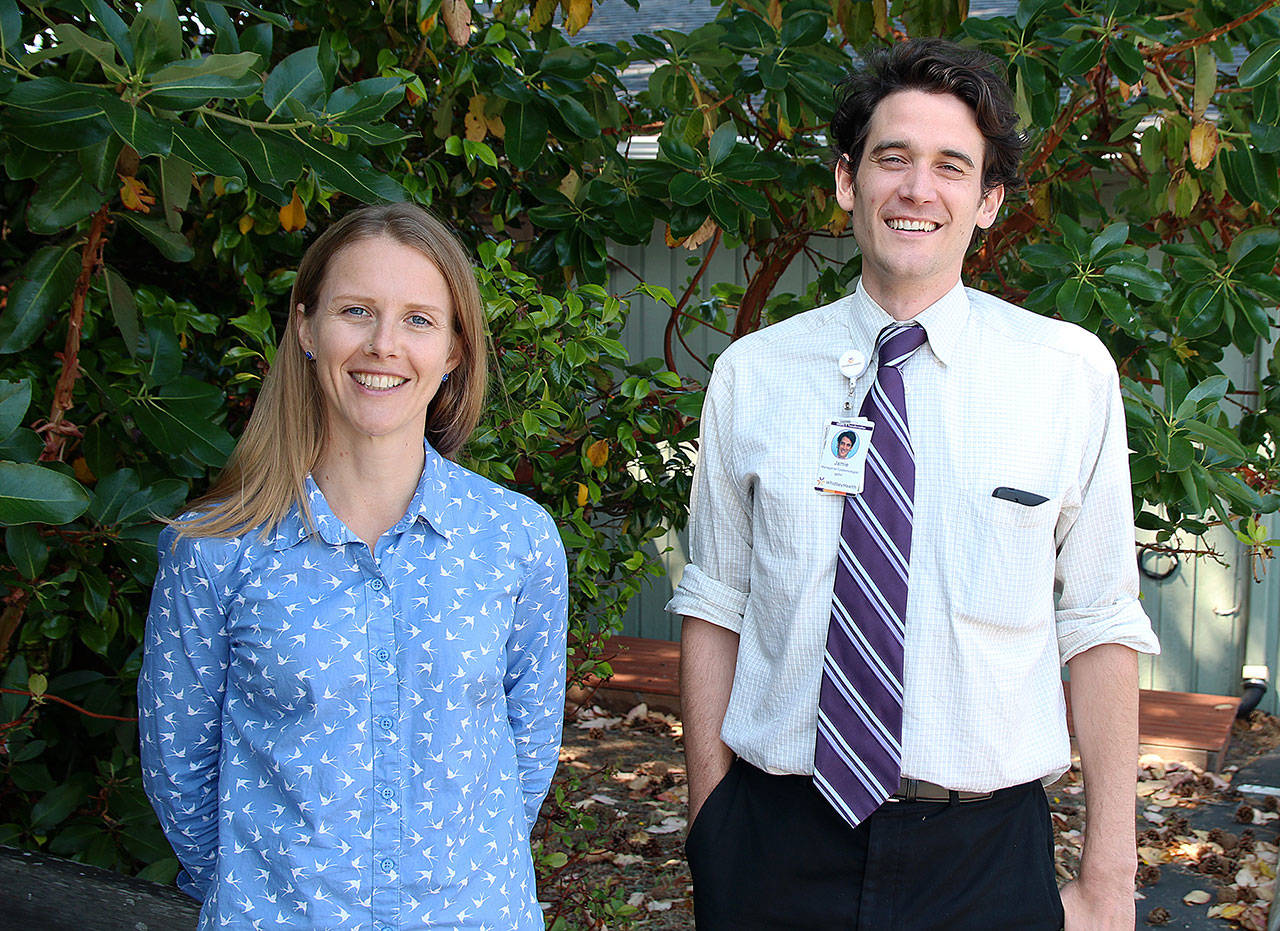As research and understanding grows about how factors such as housing, education and environment affect health, there are now two experts tasked with mapping the implications for Whidbey’s population.
Theresa Sanders joined Island County Public Health as an epidemiologist in February and Jamie Hamilton started at WhidbeyHealth in the same position in June.
Epidemiology involves using data to determine causes of health outcomes in specific populations.
Sanders and Hamilton have different projects and different perspective, but much of both of their work is driven by the statewide move toward combining physical and behavioral health care.
Hamilton is part of a new team at the public hospital district aimed at transforming how it delivers care. He studies social determinants of health, which are conditions such as poverty, availability of food and exposure to violence. The idea, he said, is not only to provide traditional medical care at WhidbeyHealth’s clinics, but also to be able to provide access to community resources to address other kinds of problems people might be facing.
Research shows that treating a physical health condition without addressing the other factors is ineffective, Sanders said. She gave the example of a doctor attempting to treat a patient who has diabetes who doesn’t have good access to nutritious food.
“It’s not efficient or effective,” Sanders said.
At the county level, Sanders is looking at the effectiveness of a number of human services’ behavioral health programs. For instance, she’s looking at the school-based mental health counselor program and its effect on anxiety, depression and suicide.
Sanders entered the public health field because of the broad impact she could potentially make. She hopes her focus on data and assessment will help the community “tackle some really big things coming up” with mental health and chemical dependency.
She was born and raised in Oak Harbor, and after leaving for 20 years to go to school and work in Arizona, she returned to focus on local health.
The key to tackling some of these large and complicated issues, Sanders and Hamilton said, is collaboration.
“Nobody really has the resources to do everything by themselves,” said Hamilton.
Big data sets from national or regional sources don’t usually have data specific to Island County or Whidbey, which is why it’s valuable to have people gathering more localized information.
It will take a long time to be able to draw conclusions or notice trends, but hopefully the benefits of having the information will be long-term.
Before making the move to epidemiology, Hamilton had been doing social work with people experiencing homelessness. He, like Sanders, saw the opportunity in epidemiology to make a bigger difference by working at a population level rather than with individuals.
“Hopefully,” Hamilton said, “you have the fuel to light some kind of policy conversation.”




